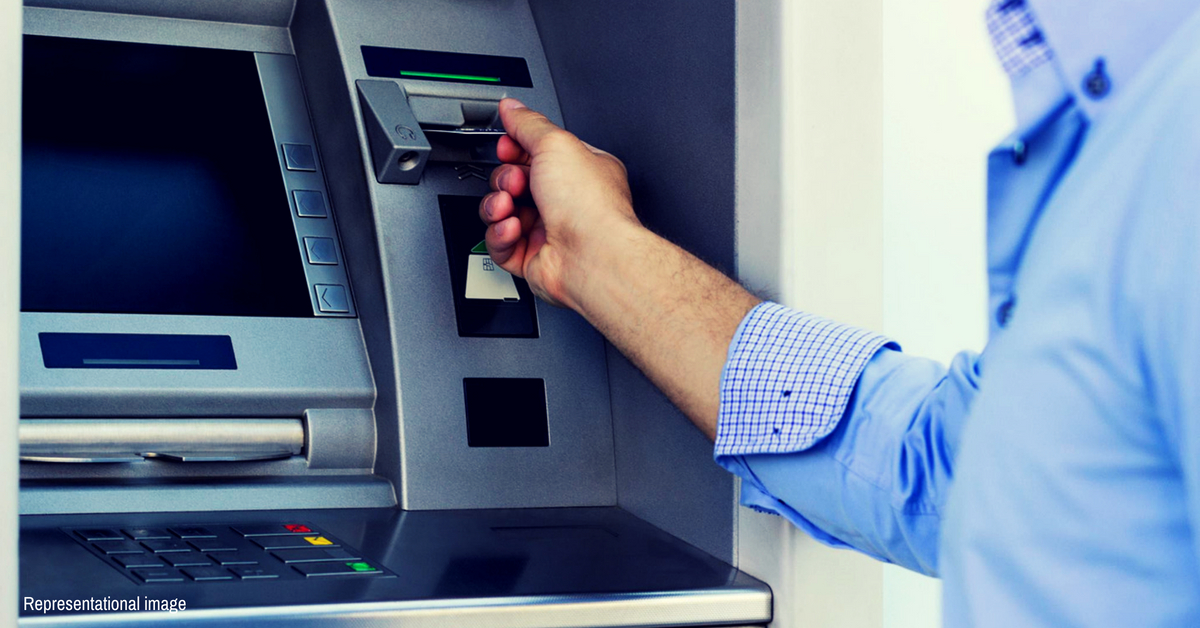‘Smart’ ATMs Are Here: All You Need To Know About Cash Recycling Machines!
A Cash Recycling machine, unlike a regular ATM, performs a dual function. It helps real-time banking by not only dispensing but also accepting/depositing cash. It automates manual cash management, thus reducing the manual labour of bank staff members.

Ever imagined what life would be like without ATMs at every nook and corner of our cities? No, right?
But did you know where the first ATM in the world was installed?
Well, it was in 1967, when Barclays kickstarted a revolution in traditional banking after it set up the first-ever Automated Teller Machine (ATM). It would dispense £10 notes throughout the day at a street corner in the borough of Enfield, London.
Cut to 2018, ATMs have become an essential part of everyday cash exchange in metropolitan cities across the world. But a new type of machine is slowly taking over regular ATMs – CRM (cash recycling machines).
Don’t know what these are? Here’s all you need to know:

A Cash Recycling machine, unlike a regular ATM, performs a dual function. It helps real-time banking by not only dispensing but also accepting/depositing cash. It automates manual cash management, thus reducing the manual labour of bank staff members.
In cash recycler machines, a user can deposit cash by placing the banknotes into a feeder. These notes are then passed through a bill identifier which counts the denominations and also helps detect counterfeit notes. Once validated, these recycled notes are then stored into separate cassettes in the machines automatically and later dispensed to the customers for withdrawal.
The cash is credited or debited in real-time. While a withdrawal requires an ATM or debit card like for regular ATMs, the user has to have his/her debit card or the beneficiary’s account number for cash deposits.
When you deposit cash, the cash recycler will automatically count the currency notes. It will then display the amount denomination-wise and the total amount inserted in the machine for deposit. Once that is displayed, it asks you to confirm if the amount is correct, and the transaction will then be complete. The user will then get a receipt which displays the updated account balance.
Since cash in a CRM is deposited by a customer and later recycled for withdrawal, the time and effort required for physical transfer of banknotes into the machine during CIT (Cash-in-transit) agency visits are drastically reduced.
According to a Financial Express report, a smart CRM offers benefits such as cardless deposits, online credit, bill payments by way of barcode scanning and secure access through NFC (Near-Field Communication) technology.
Deposit limits:
If you wish to deposit money using your debit card, the limit is up to Rs 2,00,000 per day. But it is important to note that you cannot deposit over Rs 50,000 if your Permanent Account Number (PAN) is not registered with your bank.
If you are doing it using an account number without using your debit card details, you can deposit Rs 20,000 per day. But many a time, this limit varies from bank to bank.
Read More: Got Soiled Currency Notes? Here’s How You Can Exchange Them in Any Bank
What happens if you exceed the limit?
The CRM will reject the transaction. Also, if you have an inactive bank account, you cannot deposit money in it through a cash recycler machine.
According to Livemint report, the CRM also allows you to change the personal identification number (PIN) and check the balance in your savings account. Cash recycler also provides you with a mini-statement that has the details of the last ten transactions from your bank account.
So, the CRM is not only efficient regarding ease of operations but is also cost-effective because it does not require separate specialised devices for dispensing and depositing.
(Edited by Shruti Singhal)
Like this story? Or have something to share?
Write to us: [email protected]
Connect with us on Facebook and Twitter
This story made me
- 97
- 121
- 89
- 167
Tell Us More
We bring stories straight from the heart of India, to inspire millions and create a wave of impact. Our positive movement is growing bigger everyday, and we would love for you to join it.
Please contribute whatever you can, every little penny helps our team in bringing you more stories that support dreams and spread hope.



















